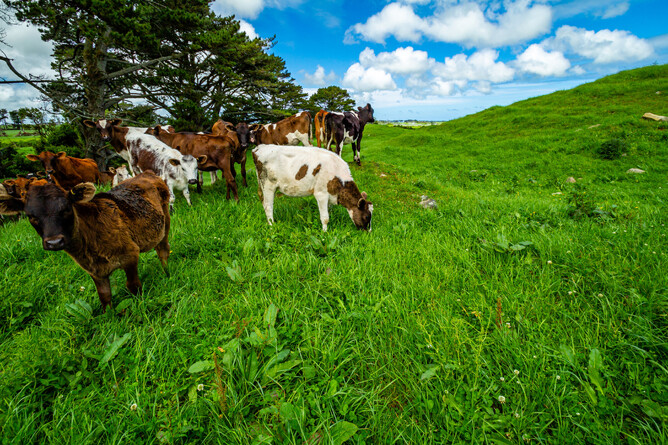Vitamin B1 (or Thiamine) deficiency in calves and lambs causes a neuro disease known as polioencephalomalacia (a.k.a. swelling of the brain).
In New Zealand, this is most commonly seen in youngstock over the summer months post-weaning (around 4-9 months of age). It can be limited to just one or two animals, but larger outbreaks also occur.
The 2023-2024 summer period saw many big outbreaks – particularly in southern Southland. That area had experienced a great flush of grass in November/December 2023.
Cattle and sheep rely on bacteria from their rumen to produce Vitamin B1 daily. B1 is an essential vitamin in the energy pathways of neurological tissue. A lack of Vitamin B1 due to changes in rumen bacteria leads to inflammation of the brain.
Sometimes this can occur when there is excess sulfur or bracken fern in the diet, but the most common time we see B1 deficiency is when animals are moved on to or off a paddock of lush grass.
What to look out for
Separation from the mob/sitting alone for long periods.
Staggering, disorientation, blindness, stargazing, or circling.
Seizures and/or sudden death.
Symptoms can progress quickly, so it’s important to identify and treat affected animals promptly.
How to treat and prevent deficiency
If you notice any of these clinical signs, quickly call your KeyVet or nearest VetSouth clinic to discuss getting a diagnosis and treatment plan.
Treatment might include:
B1 injections (not to be confused with B12!) – initially these injections are given into the vein, then afterwards into the muscle twice daily.
Anti-inflammatories are often given too.
Electrolytes if severely dehydrated.
Soluble B1 powder can be mixed with water and the whole mob orally drenched with it for a few days.
Diet changes – adjustments to feed may be necessary, such as introducing fibre (i.e. hay) or pellets that have B1 in them, or break fencing to reduce the ‘selection’ of grass (stopping them filling up on just the lushest grass).
Other ways to prevent illness:
Check sulfur and sulfate levels in diet and water additives and reduce usage if they’re high.
Minimise stress at weaning and continue both meal/pellets and fibre for a few weeks after weaning.
Slowly transition onto any new diet – no matter whether it’s ‘rough to lush’ or ‘lush to rough’ feed.

